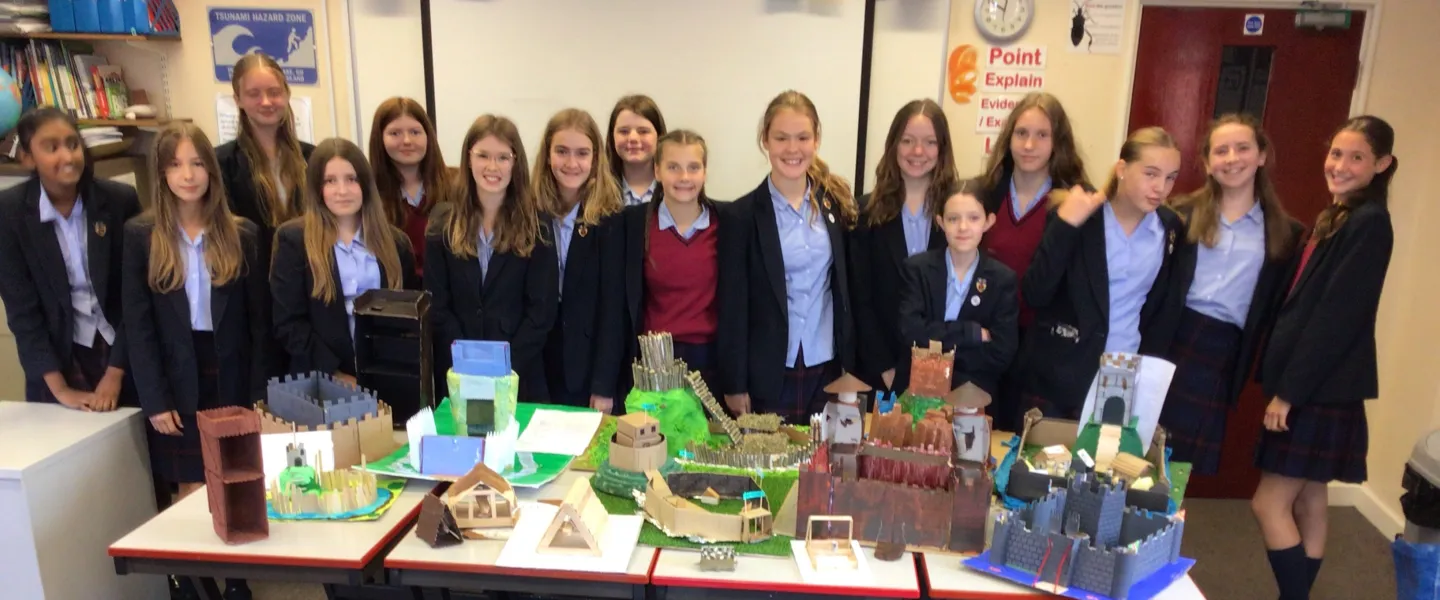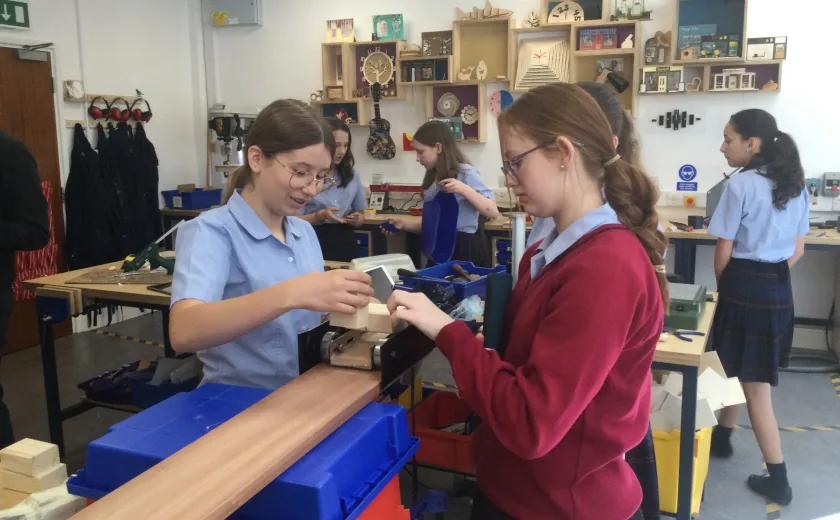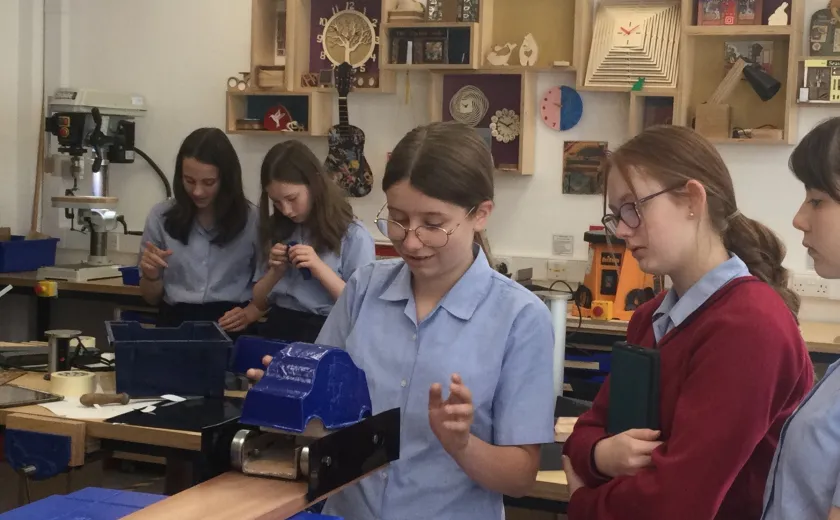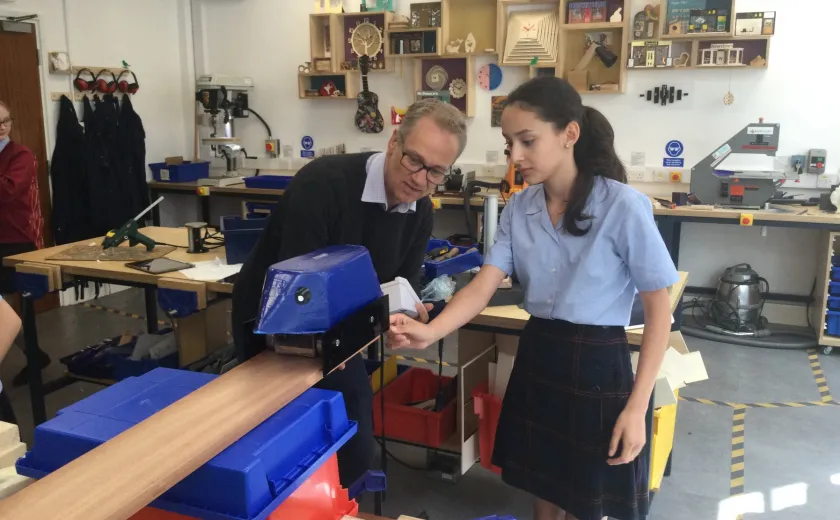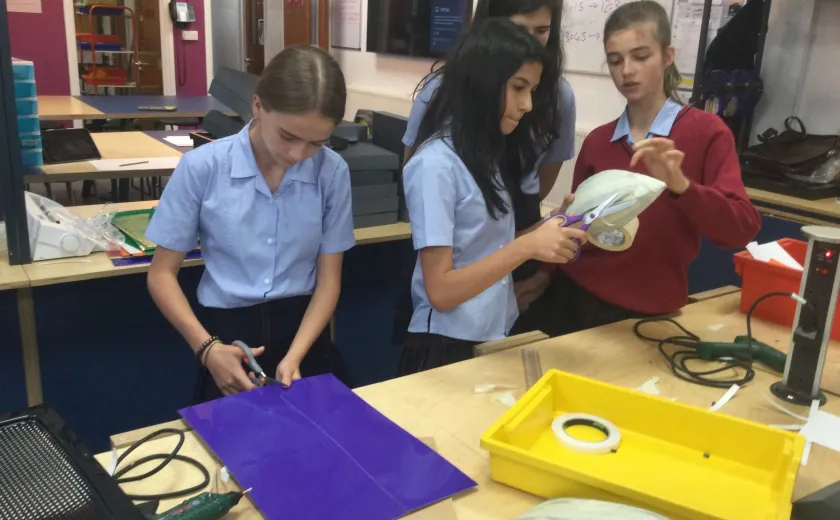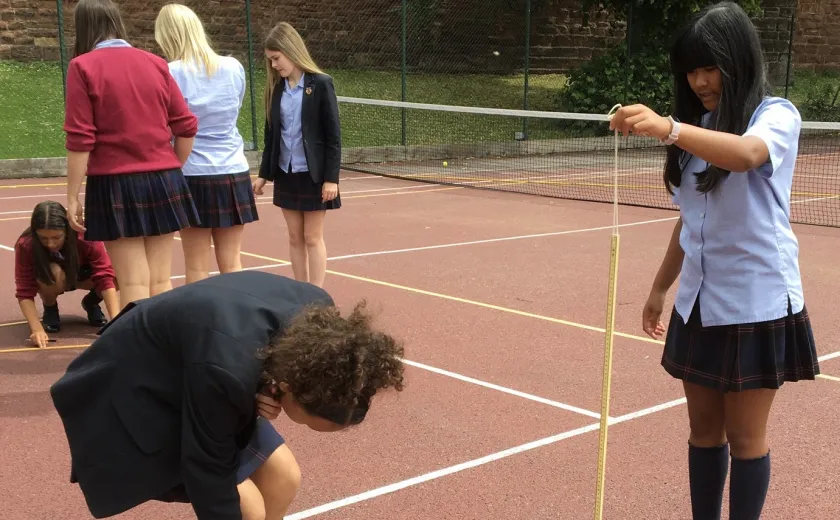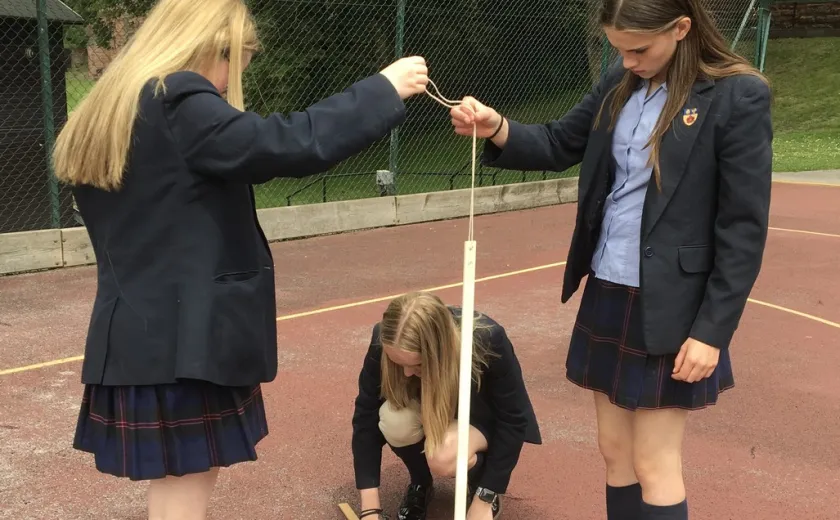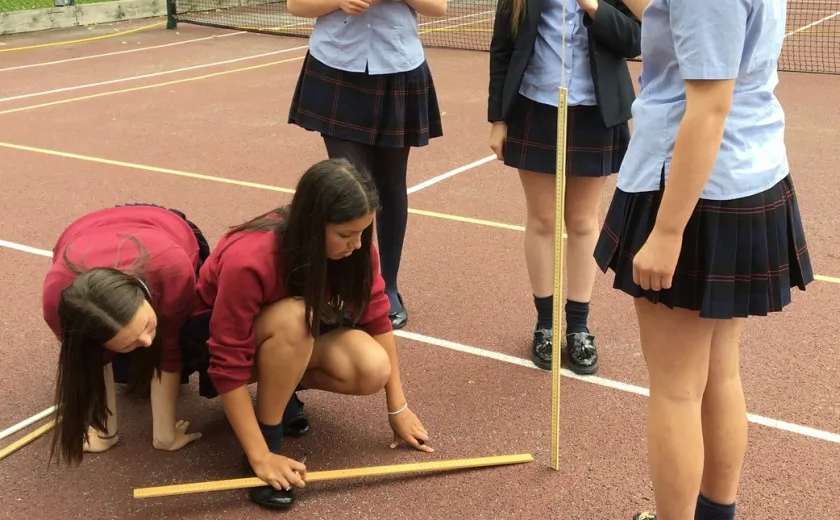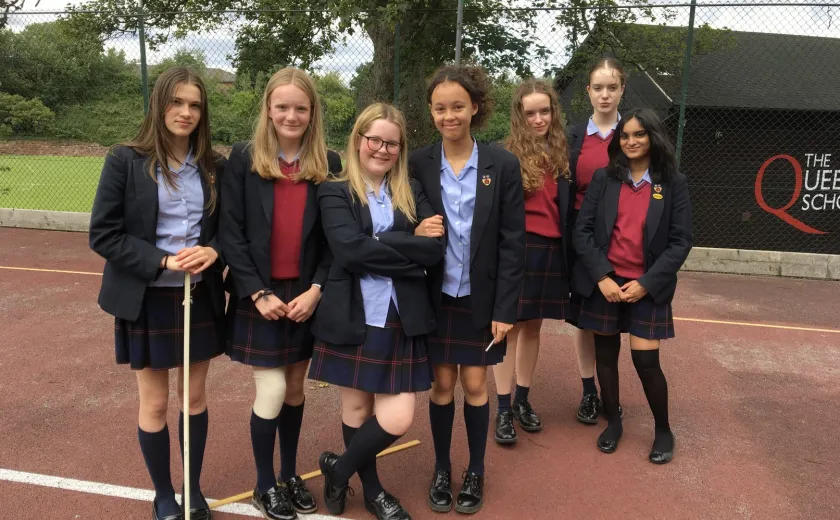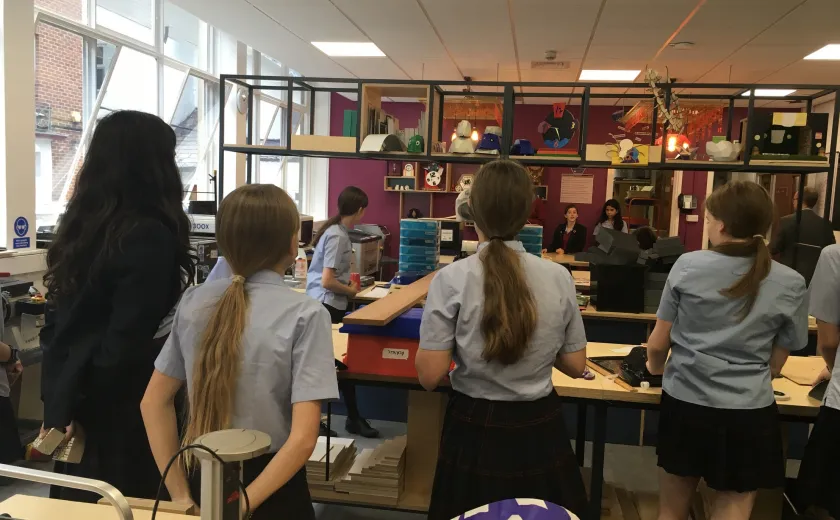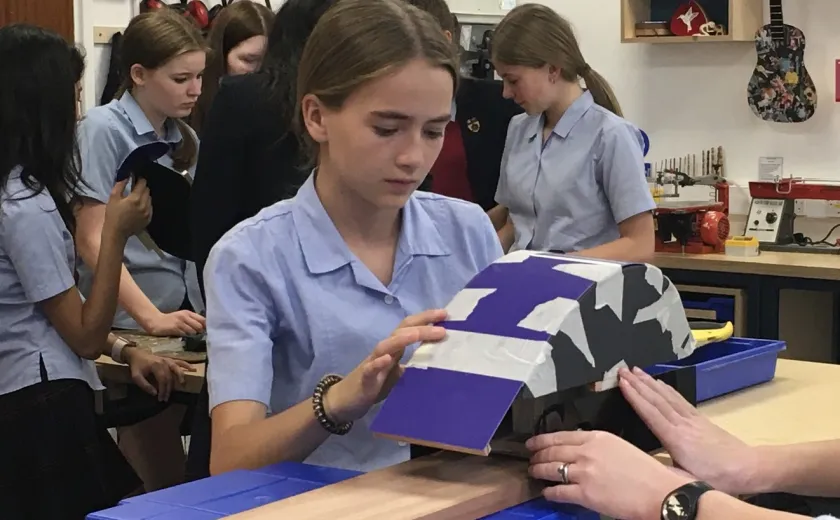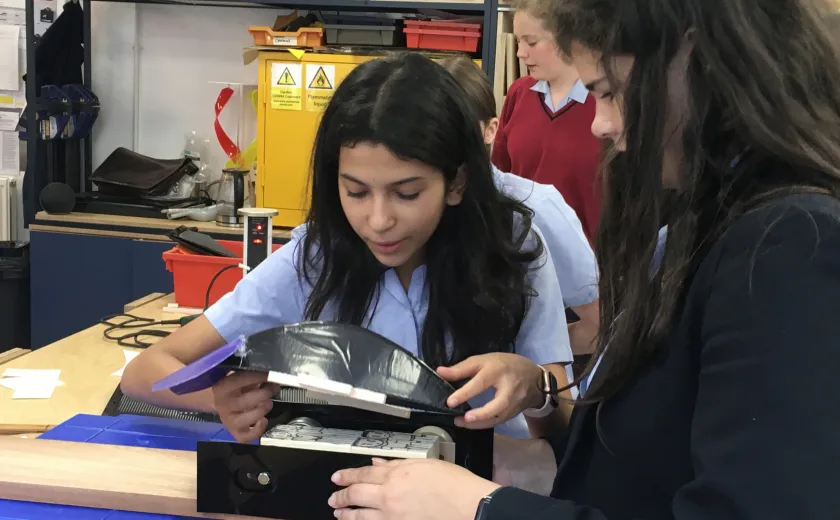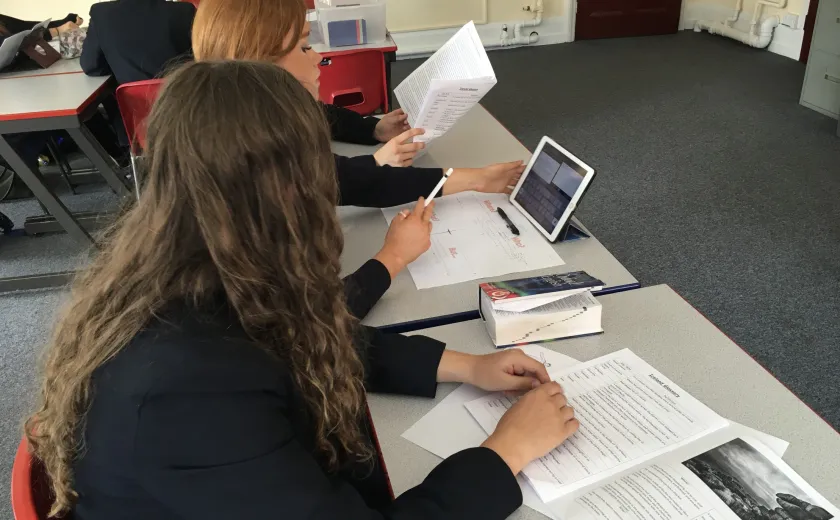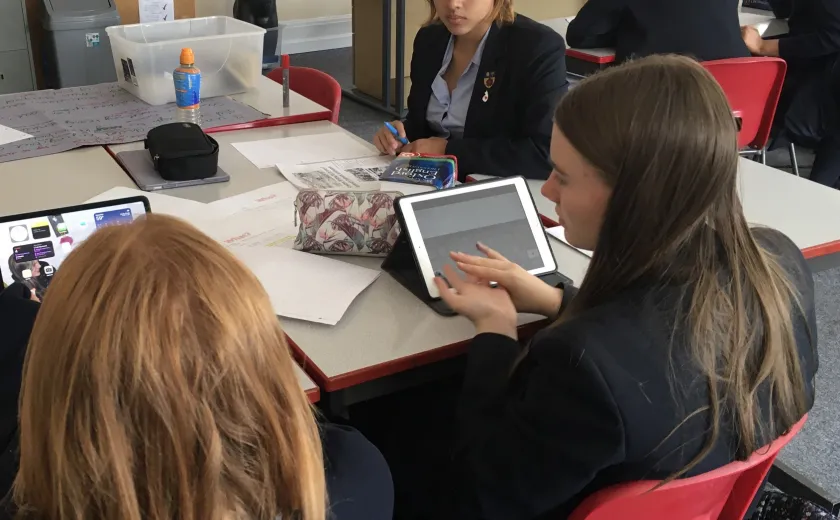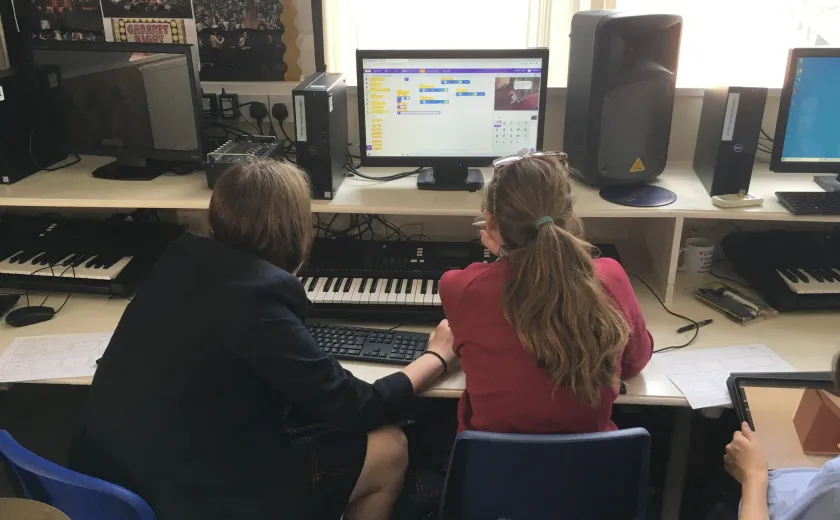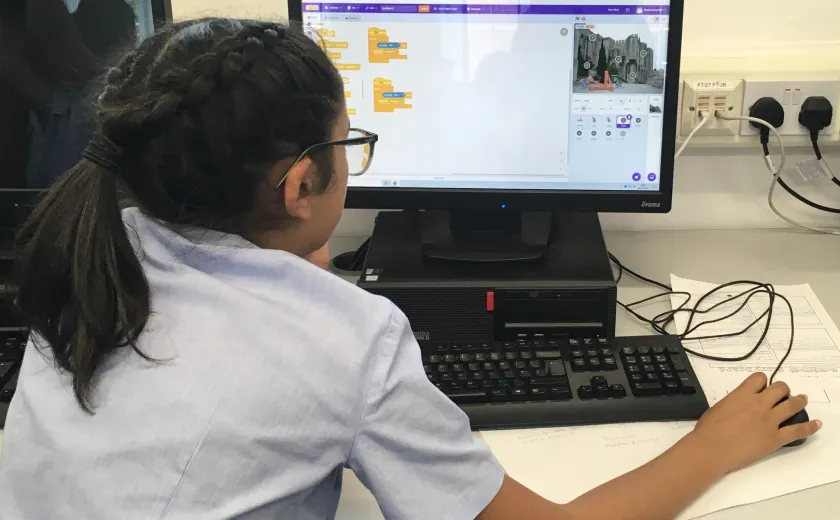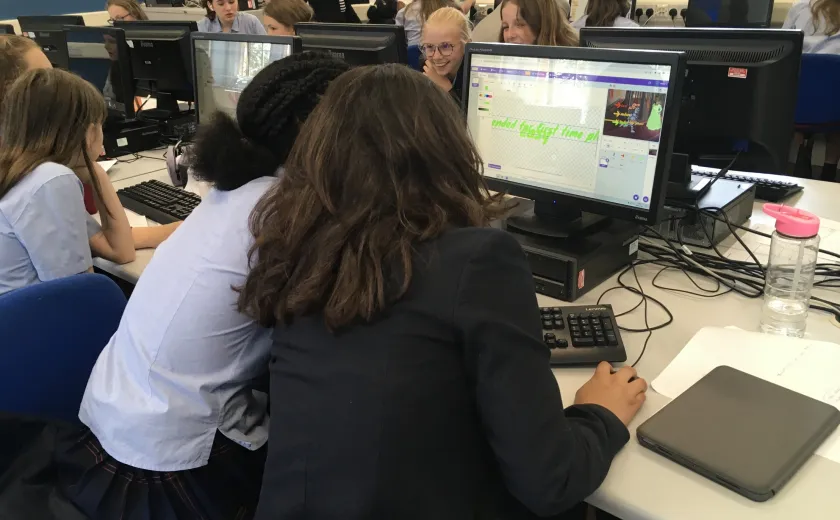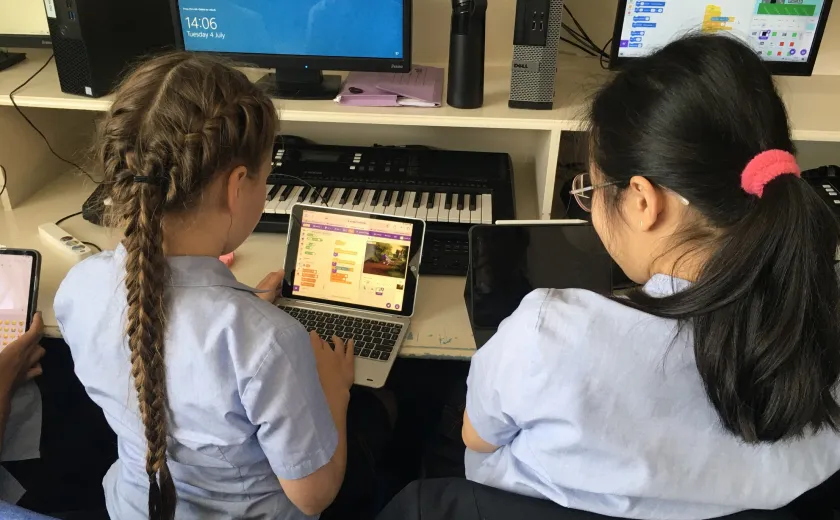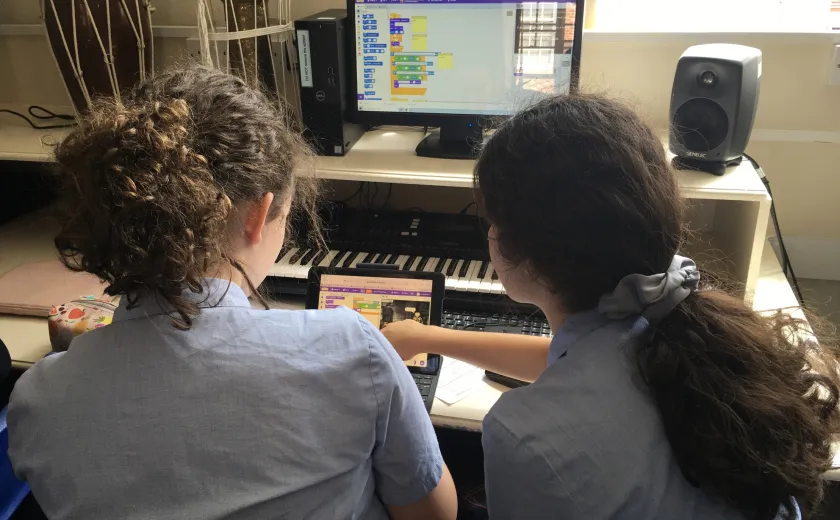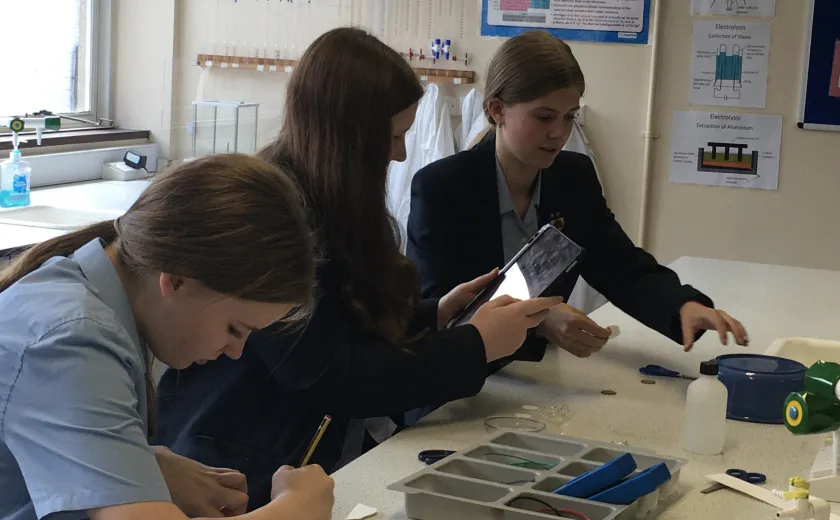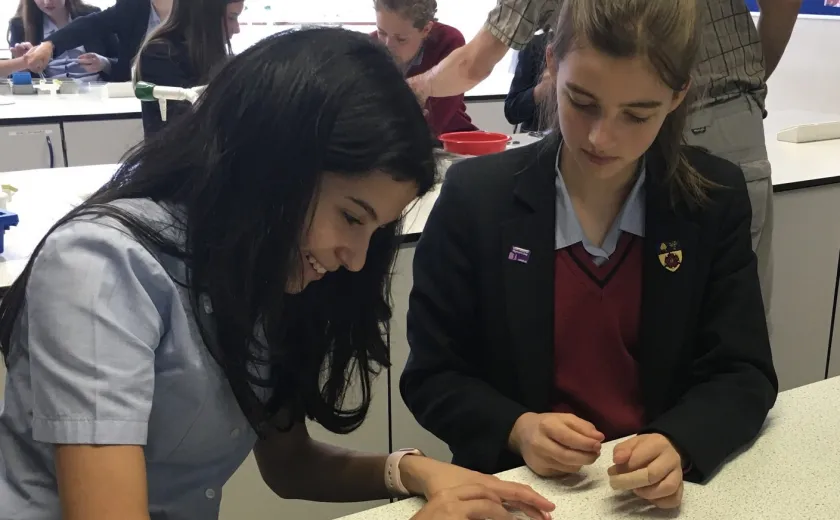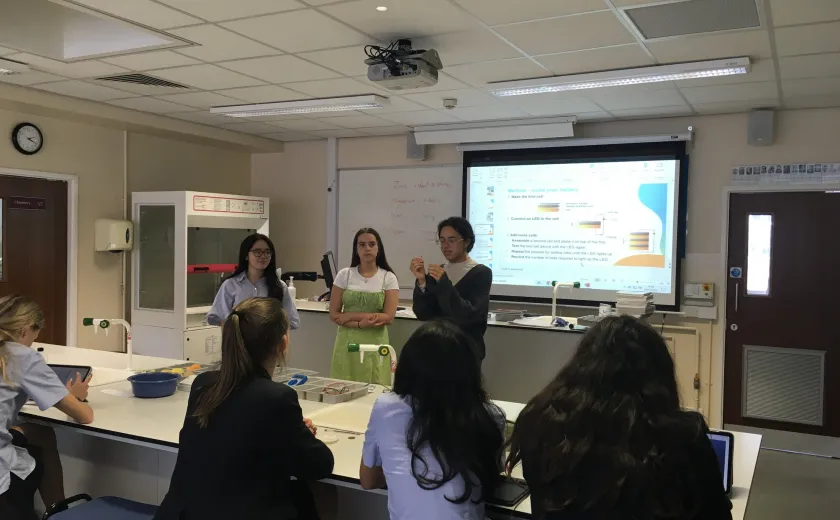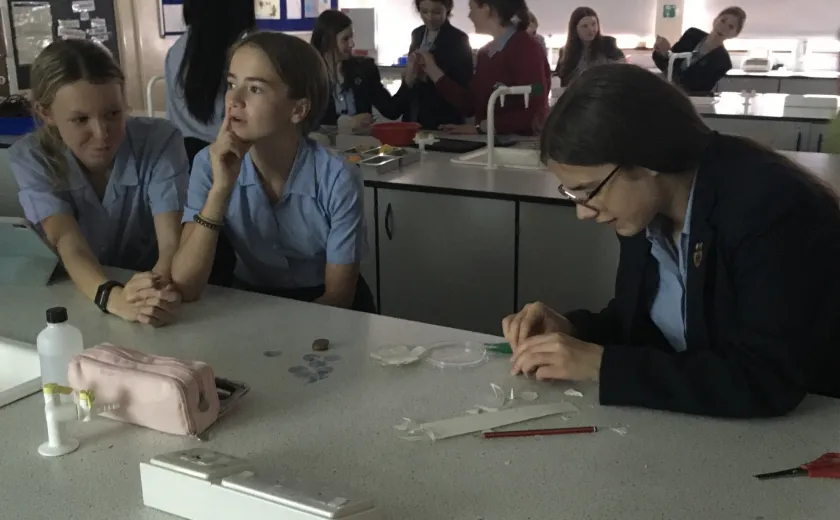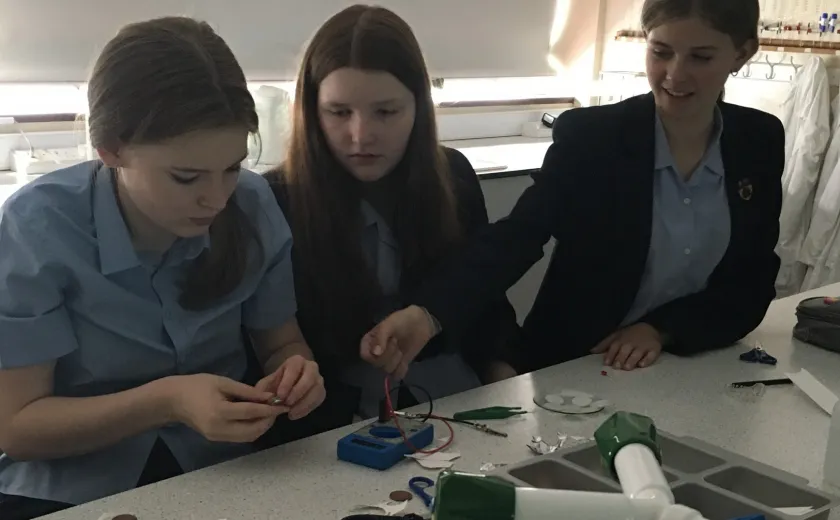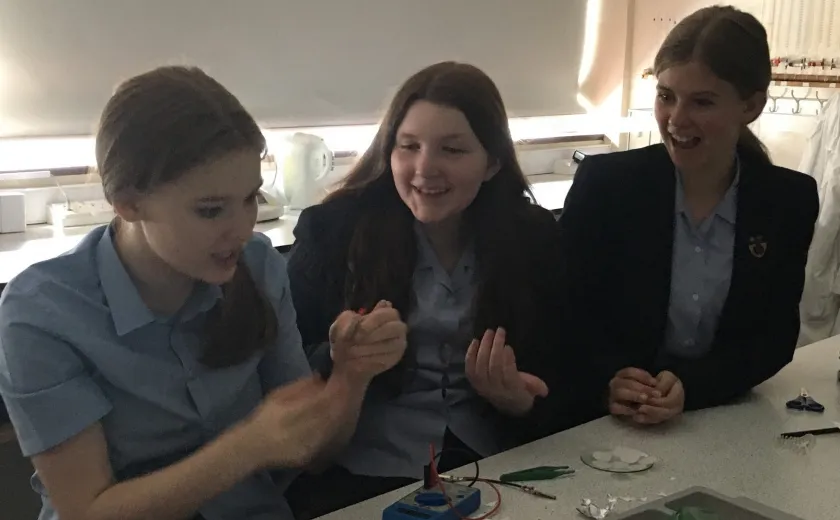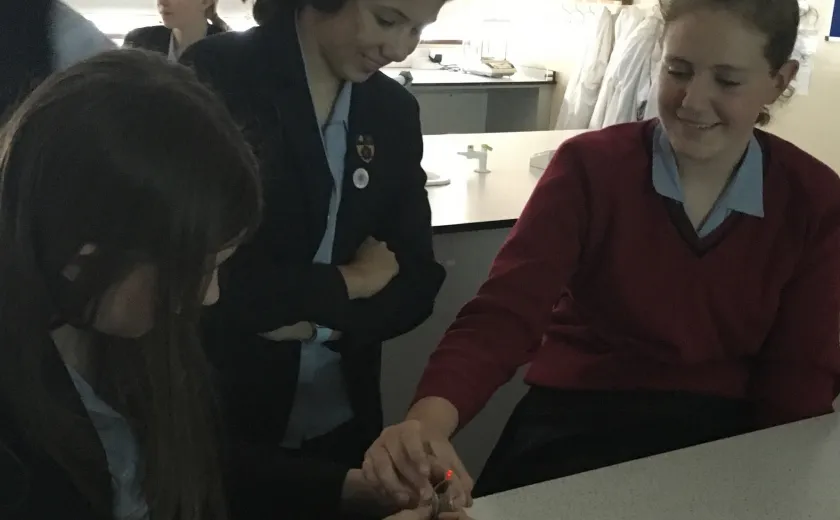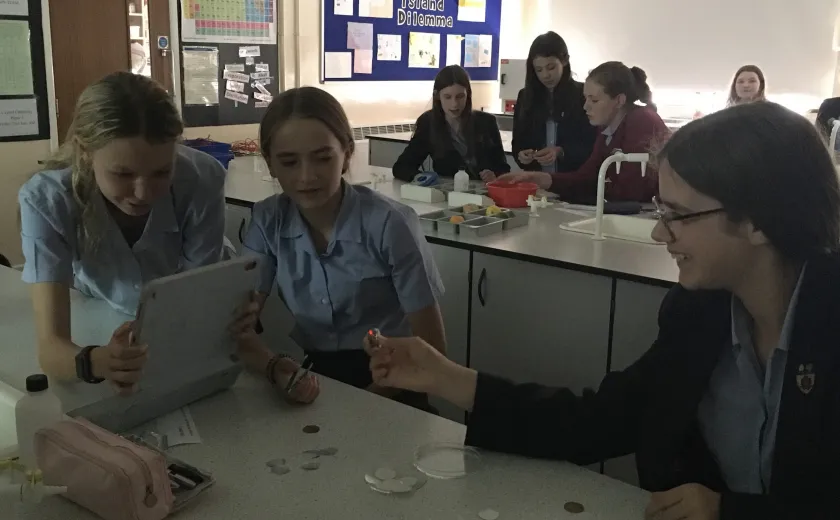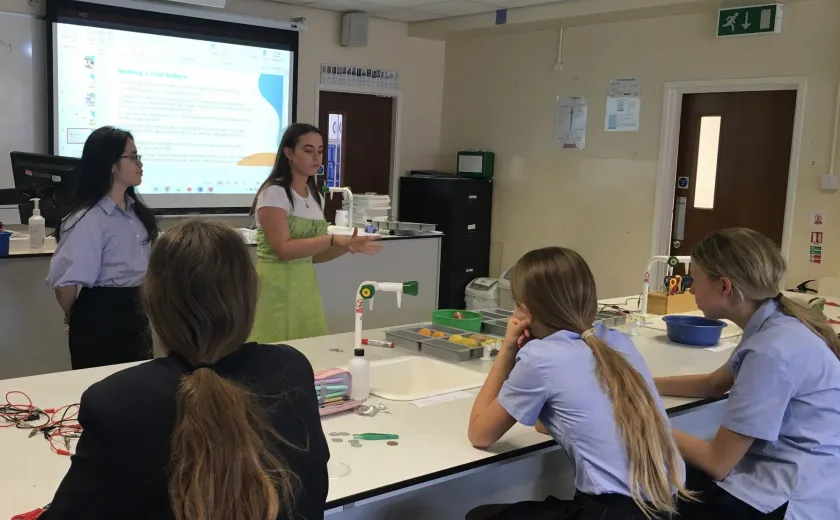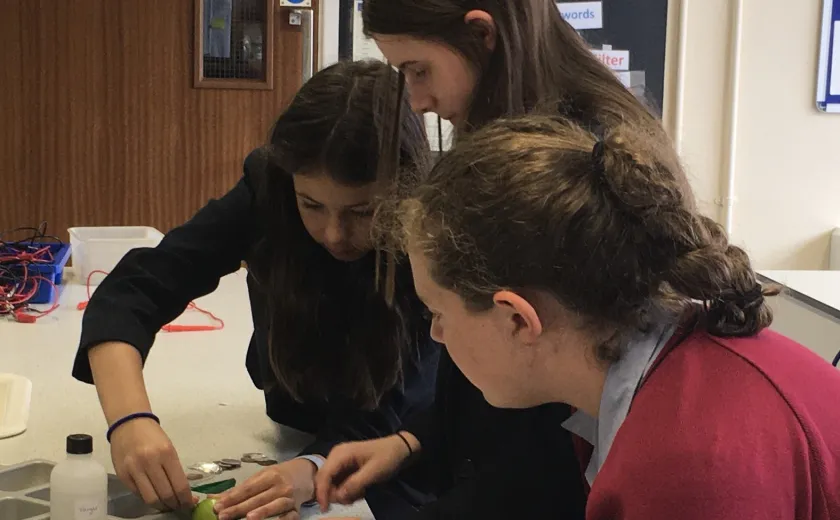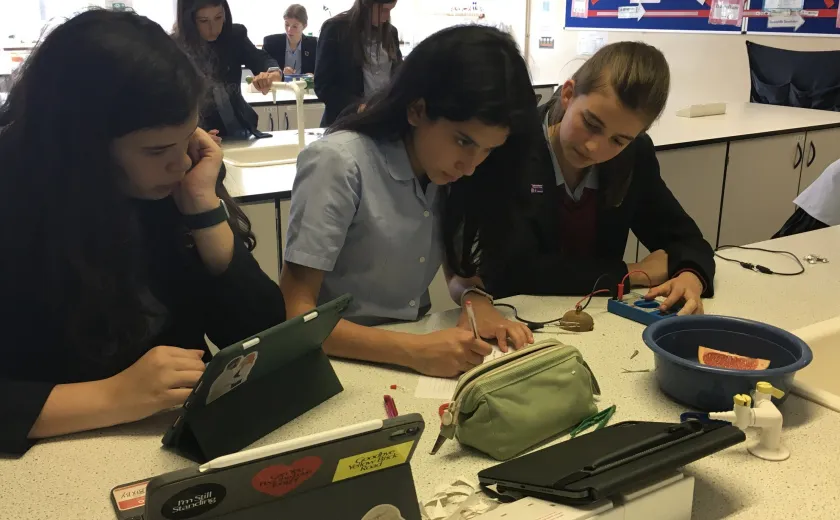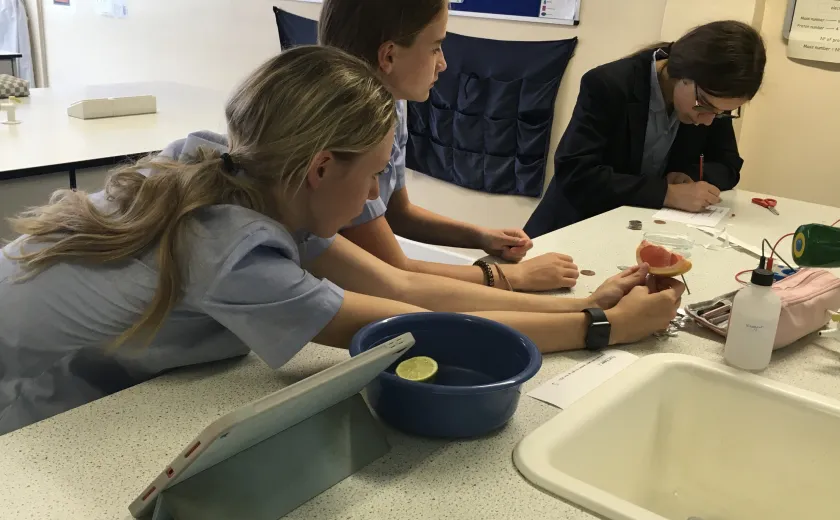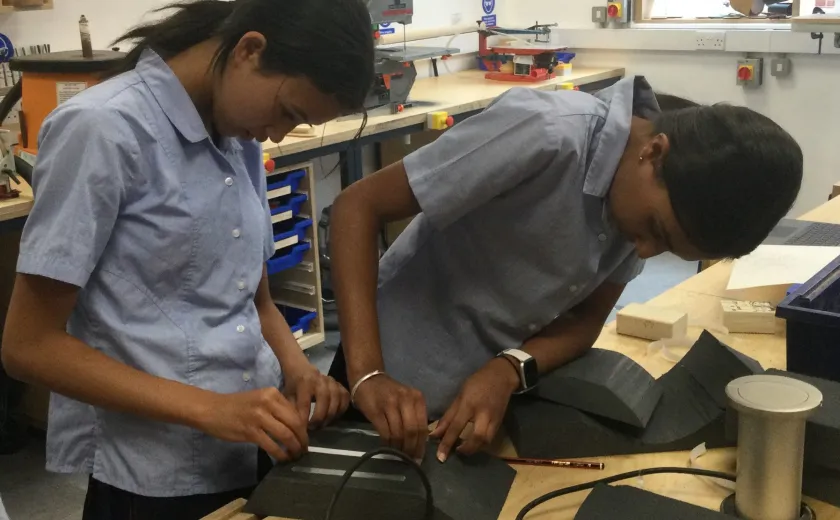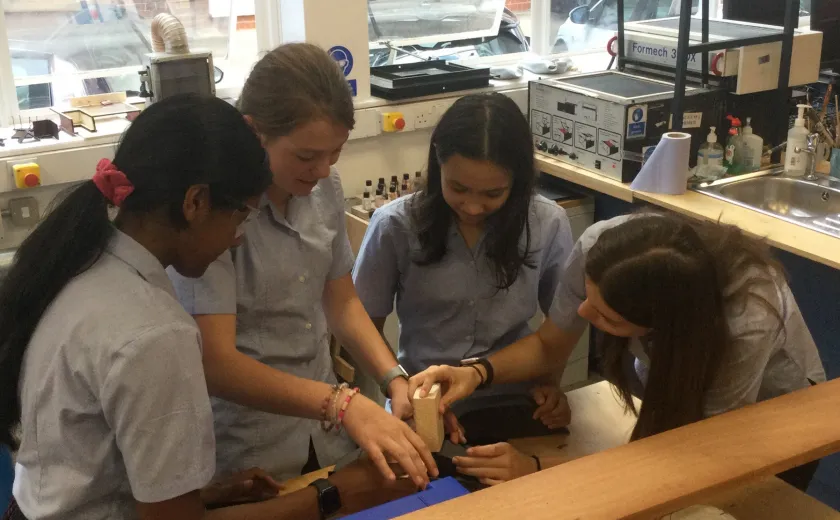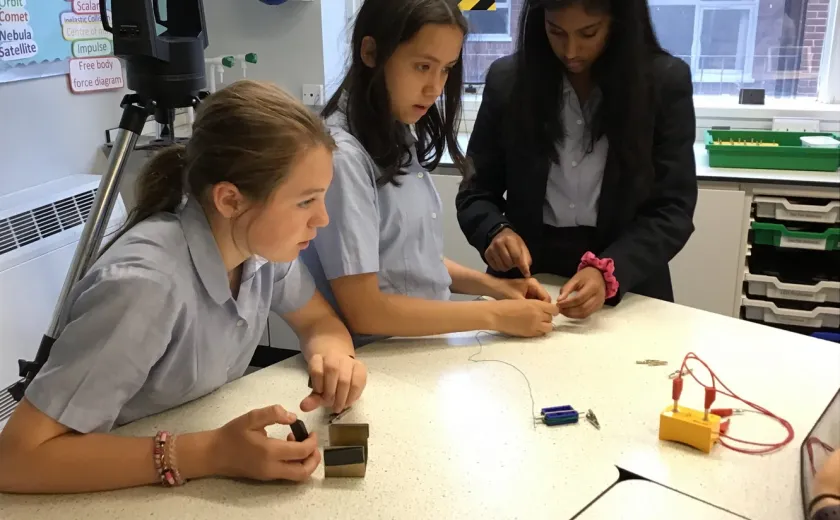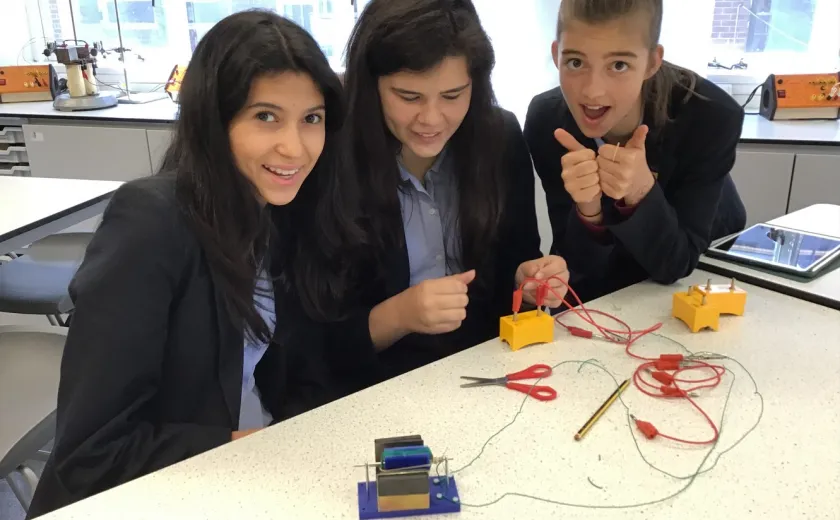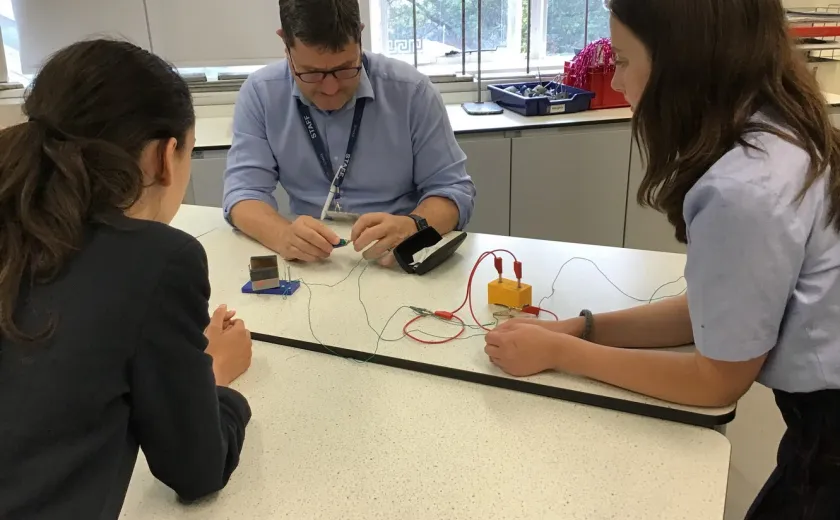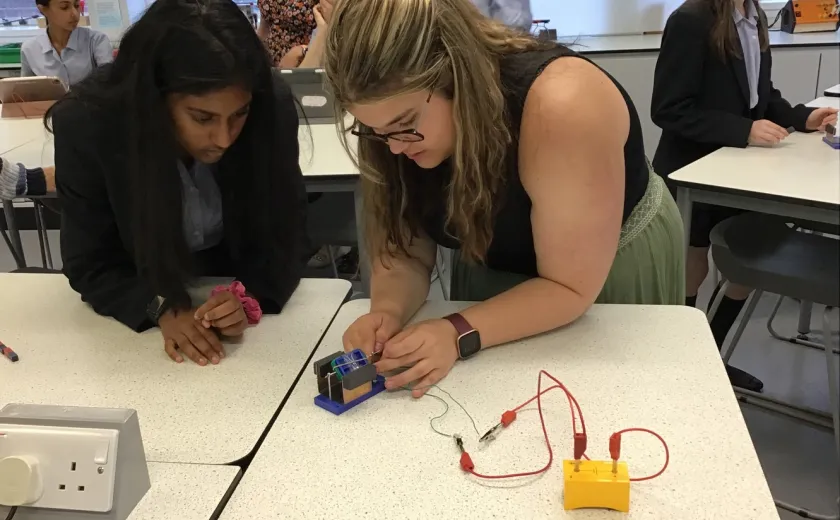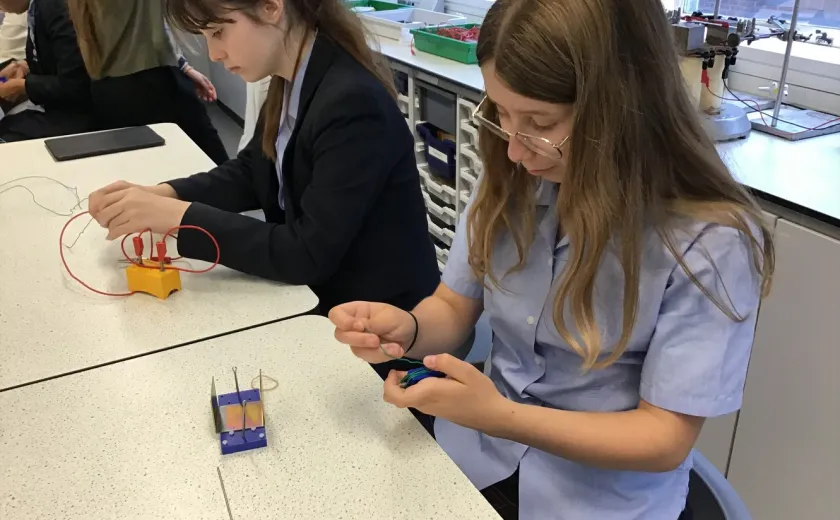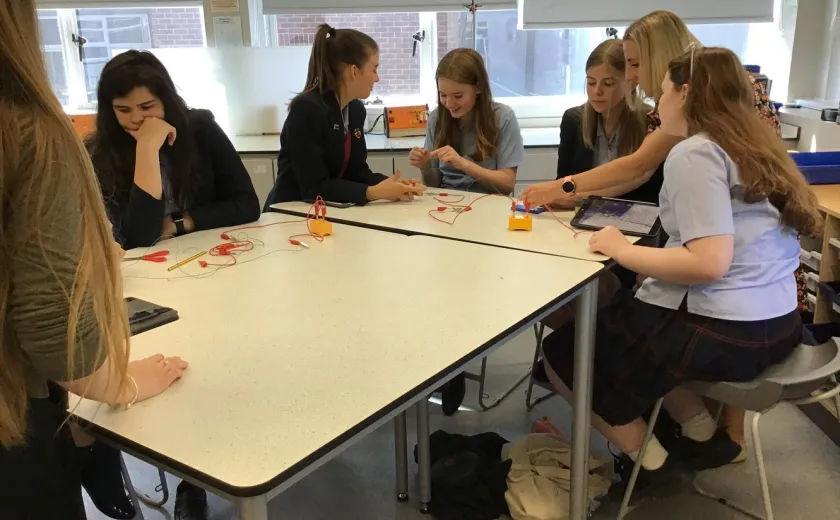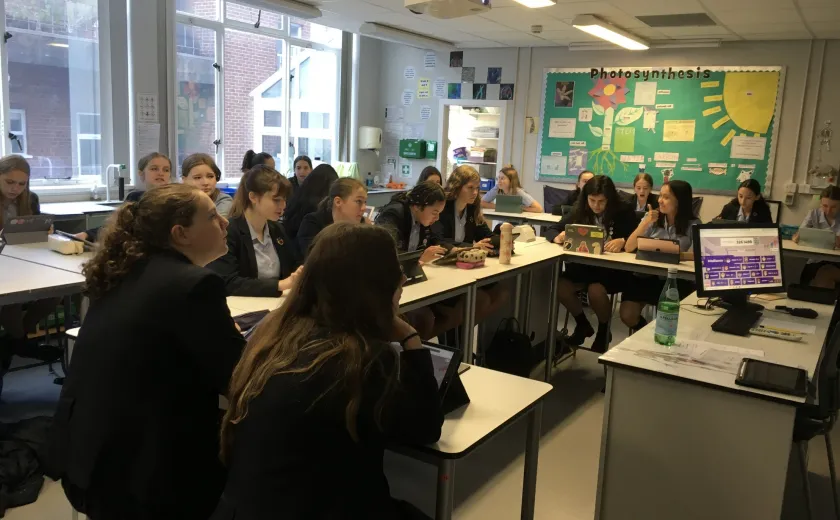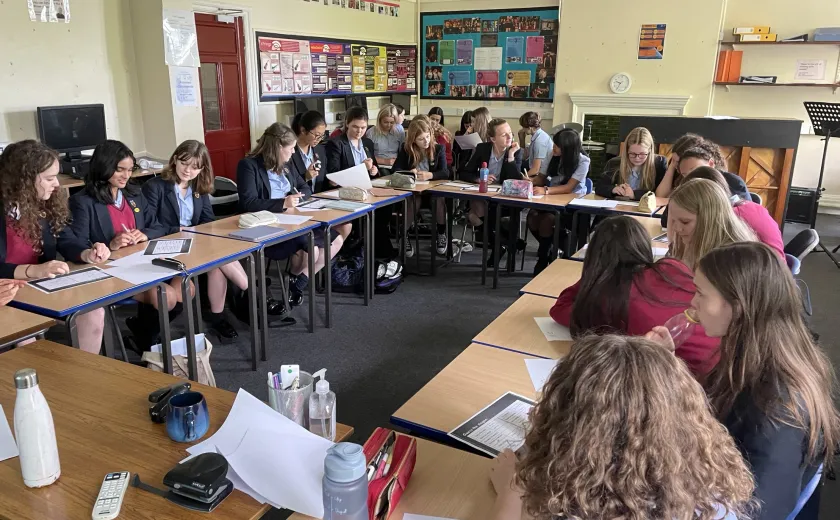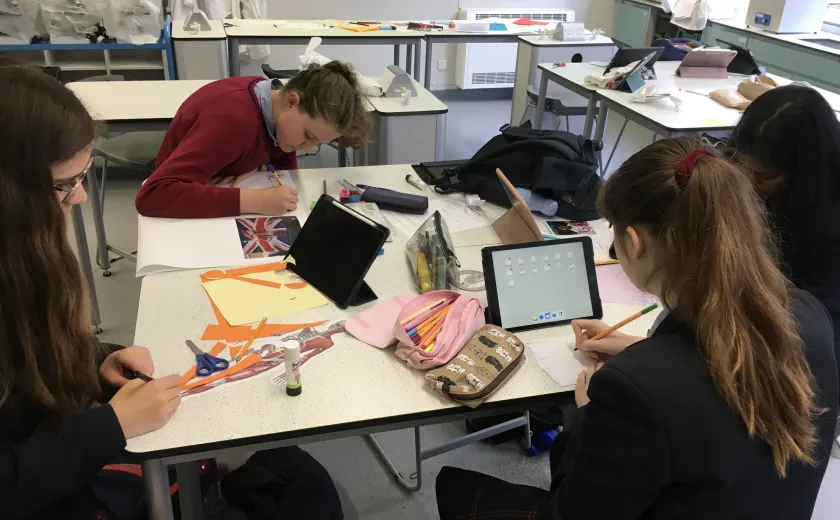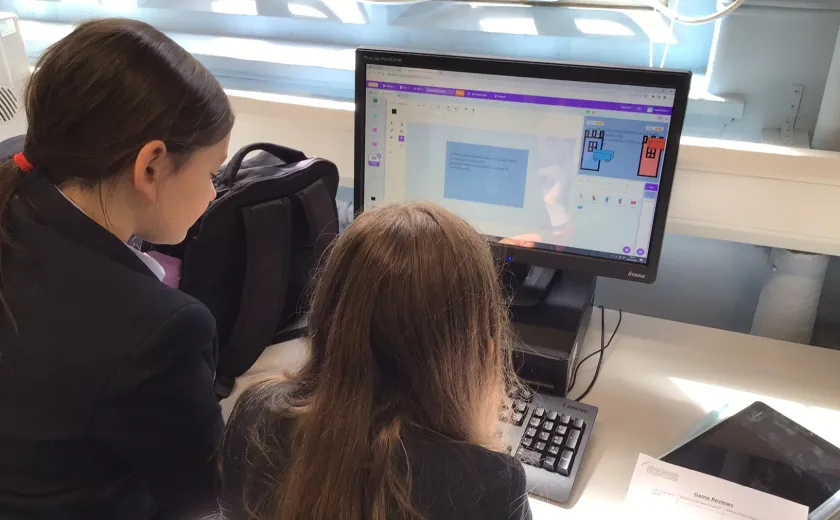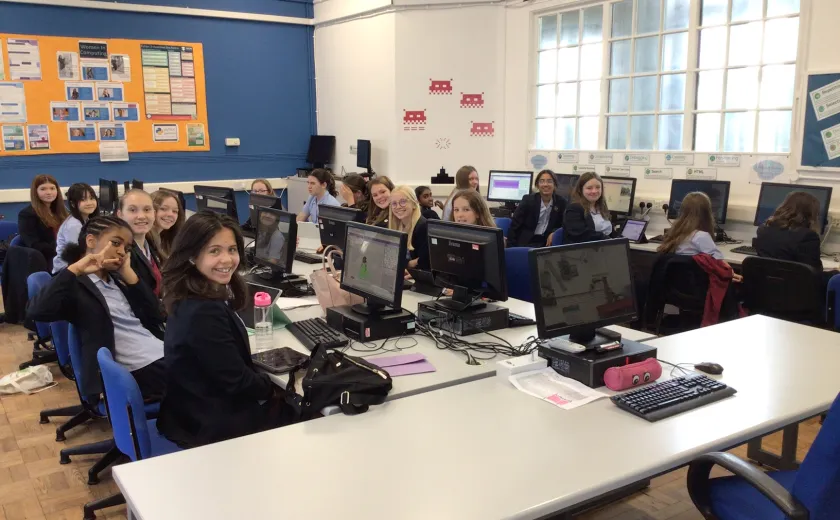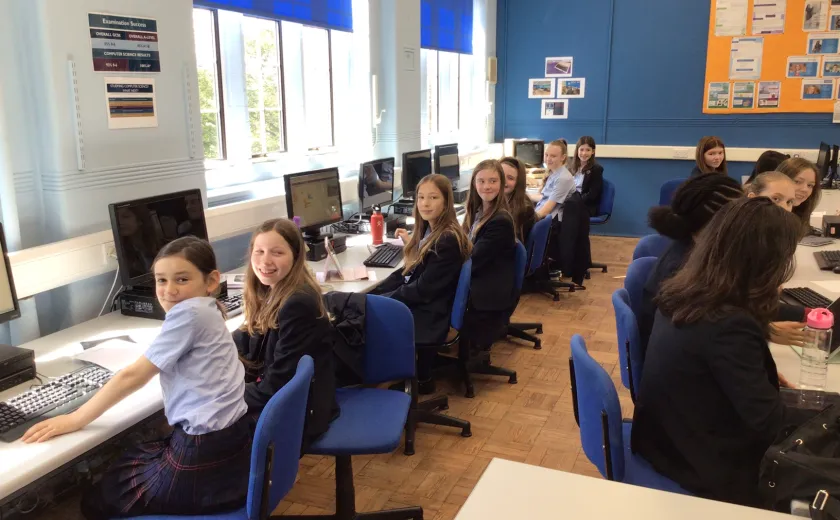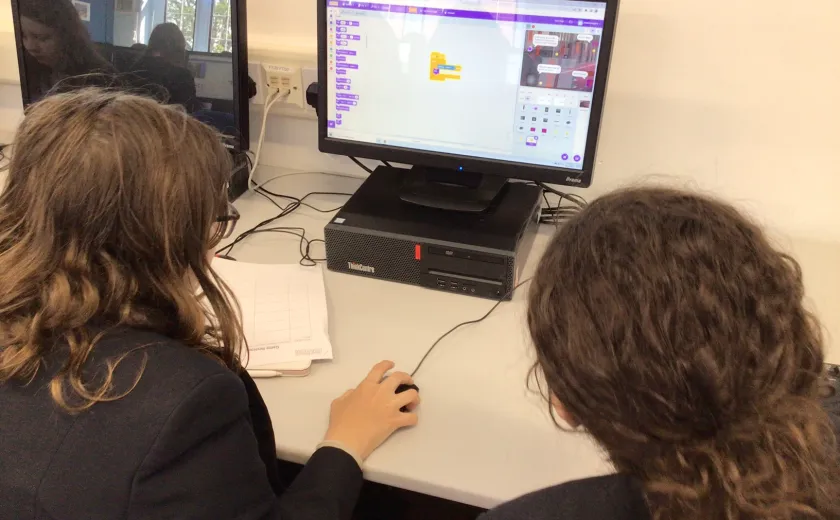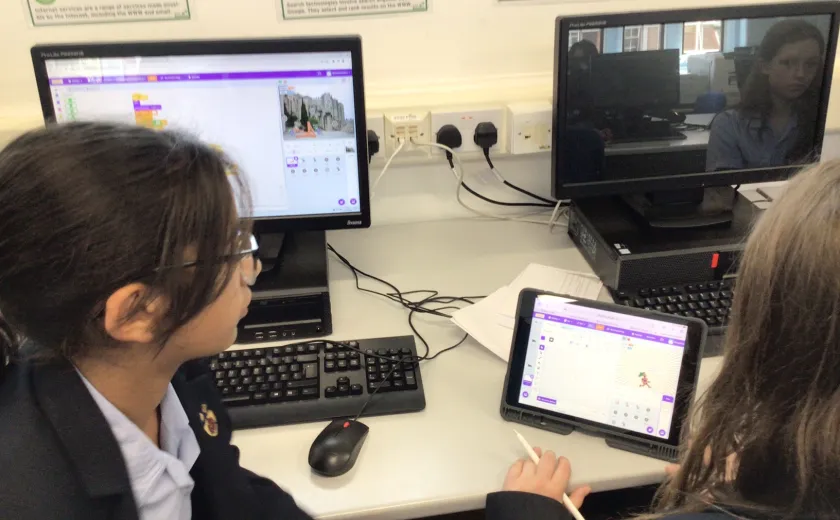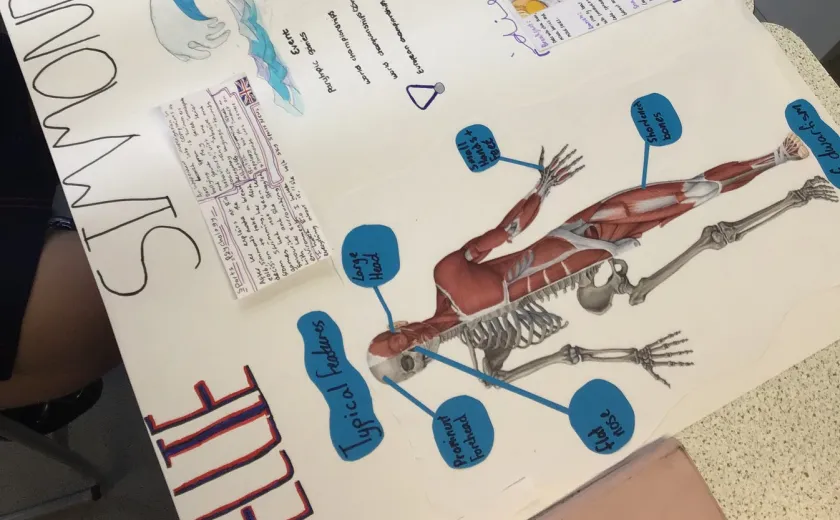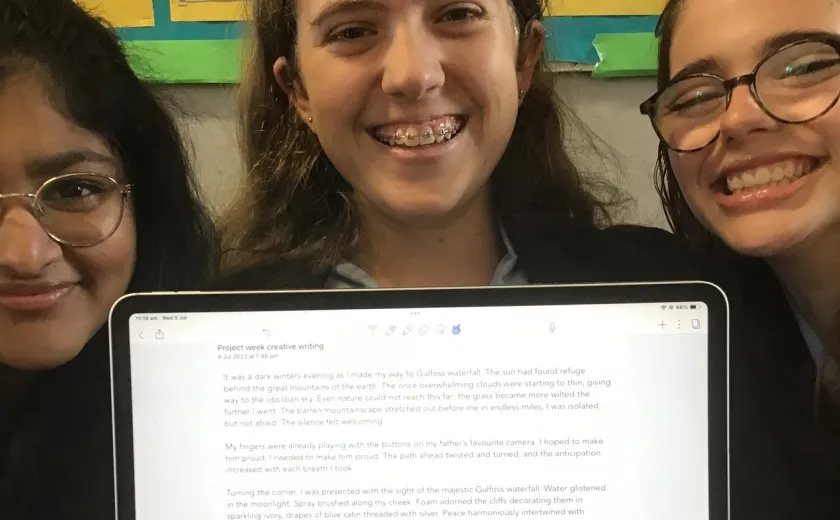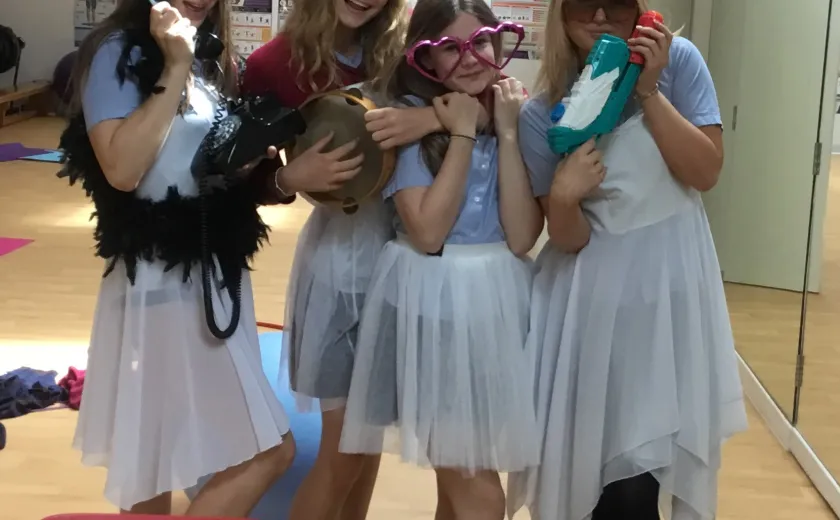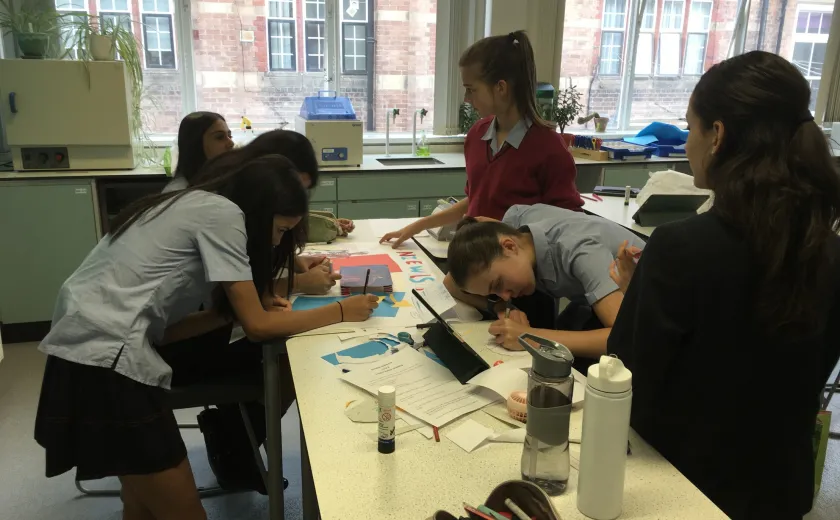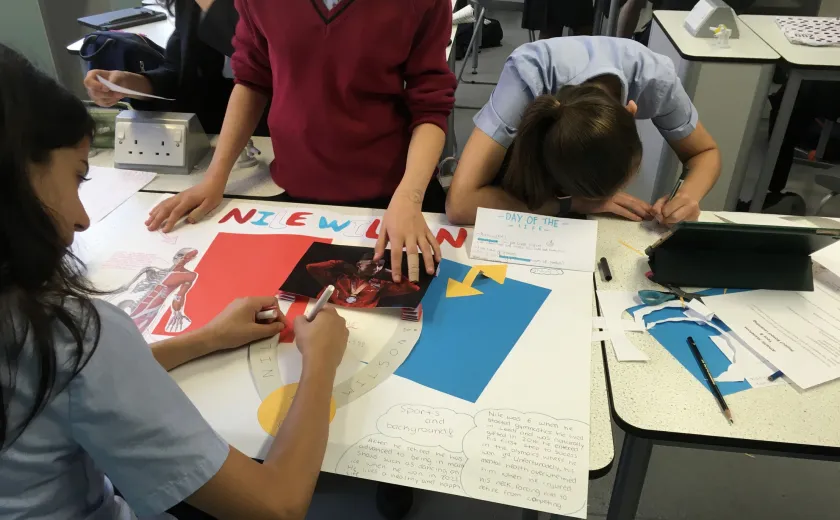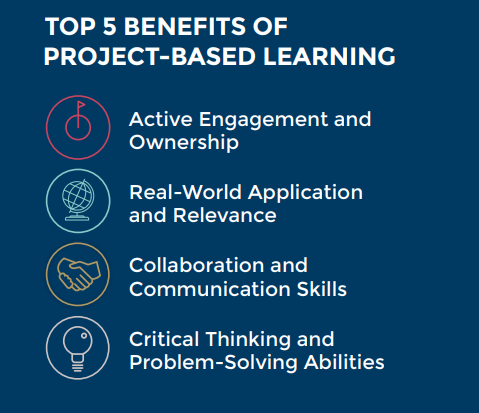
The last week of term saw all year groups at the Senior School engage in a cross-curricular Project Based Learning experience over a two-day period.
They were involved in a range of exciting projects aimed to develop collaboration, communication, critical thinking and problem-solving skills.
At Queen's we empower girls to excel academically and prepare for the challenges and opportunities of the future.
Ultimately, we want our pupils to be confident, adaptable, and forward-thinking individuals who are ready to embrace the complexities of the world and make a positive impact in their communities and professions.
After all their hard work the girls got to enjoy a lovely picnic lunch in the top garden.
Each year group took part in a different project as detailed below.
YEAR 7
Year 7 have recently been learning about and building model castles in history. During these two project-based learning days, History and Computing worked together, supporting the students as they transformed images of their castles to create castle siege games in the programming environment ‘Scratch’.
YEAR 8
Tuesday - With the departments of Chemistry, Physics and DT, Year 8 investigated the links between fruit, force and friction. Through practical enquiry, they explored how chemical reactions can produce an electric current, how an electric current can produce a force, and how air resistance can be reduced. They then used their discoveries to design model vehicles.
Wednesday - The Biology and PE departments worked together to understand the physical and emotional factors affecting performance in professional sportspeople. The students researched skeletons, joints, muscles, injuries, and mental resilience to understand how they impact upon athletes from a range of sporting disciplines. They then chose a medium to share their findings such as a model, animation, presentation, or poster.
YEAR 9
Tuesday - Led by the Business and Psychology departments, students in Year 9 looked at the power of advertising and branding, starting off with how the use of celebrity endorsements can increase sales and brand awareness. The project involved working in teams to devise a product then work together to produce a montage to pitch their ideas. They learnt to use psychological tactics to persuade and influence their audience to purchase the best one.
Wednesday - Classics, Religious Studies and Maths worked together to explore how numbers and philosophy came together in the work of the polymath scholars of the ancient world. Taking inspiration from thinkers like Eratosthenes (276-195 BCE), who calculated the circumference of the earth with remarkable accuracy, students used the methods of early mathematicians to measure the distance between points on the school site. Complementary to this, the students investigated the classical world’s fascination with the mystique of numbers, shapes and forms, and the insights achieved in the period into the nature of the cosmos and our place in it.
YEAR 10
English worked with Geography to produce fiction, informed and inspired by landscape. They drew on the ‘Nordic Noir’ crime writing genre and used the influence of the unique landscapes of Iceland to build pupils’ knowledge both of the physical environment, and the way humans interact with it. The work was an excellent foundation for both physical geographical understanding and also to build awareness of the techniques and craft of creative writing.
YEAR 12
Year 12 worked alongside teaching staff to deliver the wide variety of cross-curricular activities to Years 7-10, developing key leadership and organisational skills while working on these projects.
